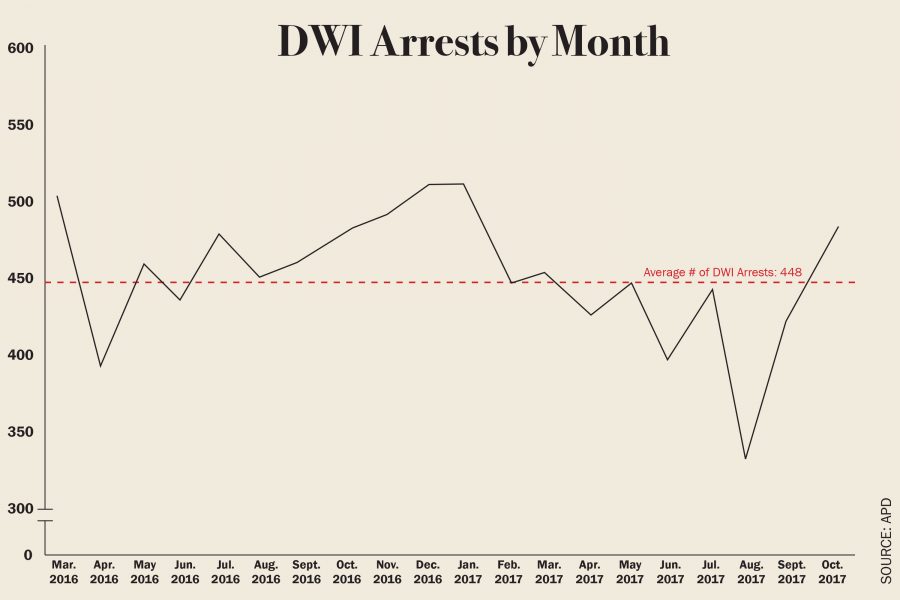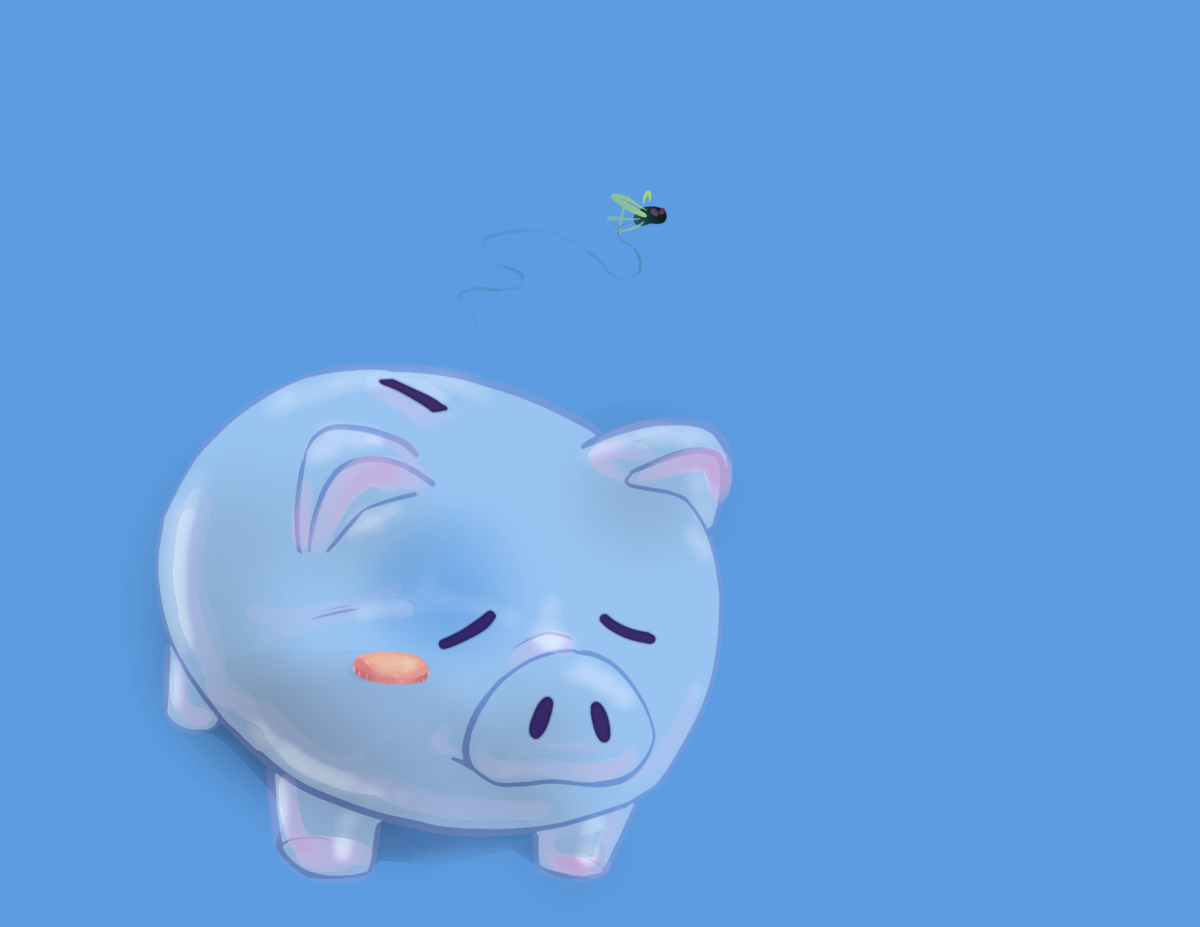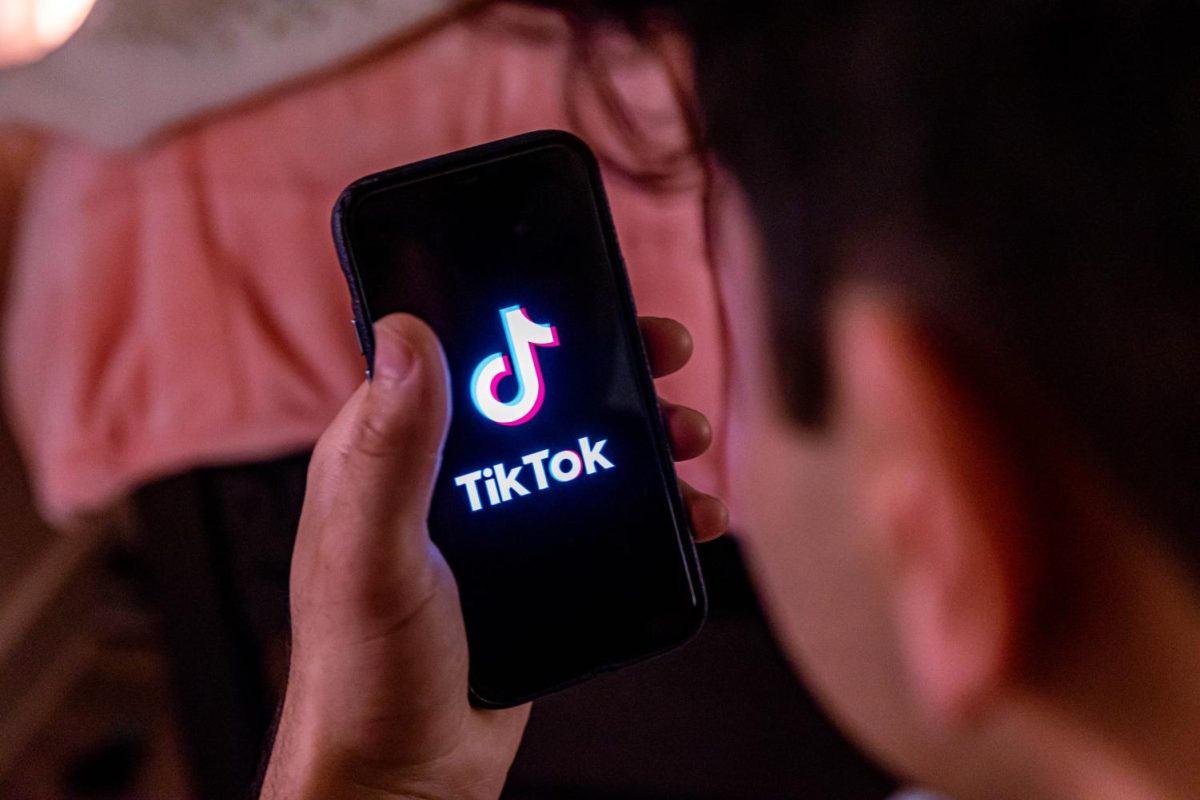The absence and subsequent return of Uber and Lyft had almost no effect on the number of DWI arrests in Austin each month, according to monthly Austin Police Department data from March 2016 to October 2017.
APD Detective Richard Mabe said it is difficult to prescribe a specific reason for most fluctuations. With so many alternatives to driving, such as buses, local ride-hailing services or having a designated driver, Mabe said the only way to determine if Uber and Lyft effected someone’s decision to not drive while intoxicated is to ask every single person that did not get a DWI if they used the service instead of driving.
“It’s hard for us to advocate for one (driving alternative) or another because we have no way to know, specifically, if one group or the other is actually making a difference,” said Mabe, who works in APD’s DWI’s Enforcement Team.
On average during the 20-month period, APD had 448 DWI arrests per month. The most arrests occurred during January of this year with 510 arrests, and the fewest occurred in August with 337 arrests. From one month to the next, the number of arrests often did not vary by more than 50.
“When there’s fluctuations in our numbers, the other part we have to look at is what’s going on in the city during that particular month that may cause that dip in numbers or that spike,” Mabe said.
The definition of intoxication is loss of normal use of a person’s mental and physical faculties by consumption or use of alcohol, illicit drugs, legal drugs — or a combination of those — or having a blood alcohol content level at or above 0.08, Mabe said.
To discourage drinking and driving, the city recently implemented a policy that lets anyone use their receipts for a ride-hailing company, bus or taxi to waive any overnight parking tickets received. Individuals who got a ticket can file online to have it waived within 24 hours of receiving it.
Lyft also tries to encourage people to avoid drinking and driving. Every few weeks, they take a glass box around 6th Street, one side with a few dollars lying at the bottom and the other filled with the hundreds of dollars to show the cost of a DWI to demonstrate that the risk simply is not worth it, said Aaron Fox, general manager of Lyft in Central Texas.
“I think this is effective for the people that are able to see it,” Fox said. “Drinking and driving has been a long-time problem in the United States …. It’s great to be a part of the solution.”
Advertising sophomore Madeleine Badinger said she uses Uber frequently to get home after going out for the night. Badginer said for her, drunk driving simply is not an option, but she said having Uber and Lyft around is not going to change the minds of people who believe they can drive because they “only had a little.”
“I think if you believe in not drinking and driving, you’re not going to do it no matter what,” Badinger said. “No matter how much you have to pay (to get home), it’s not worth it.”





















